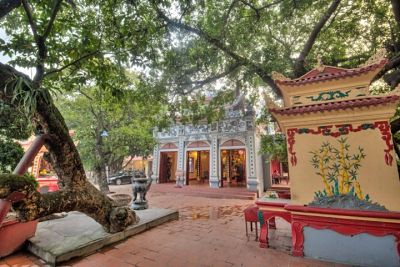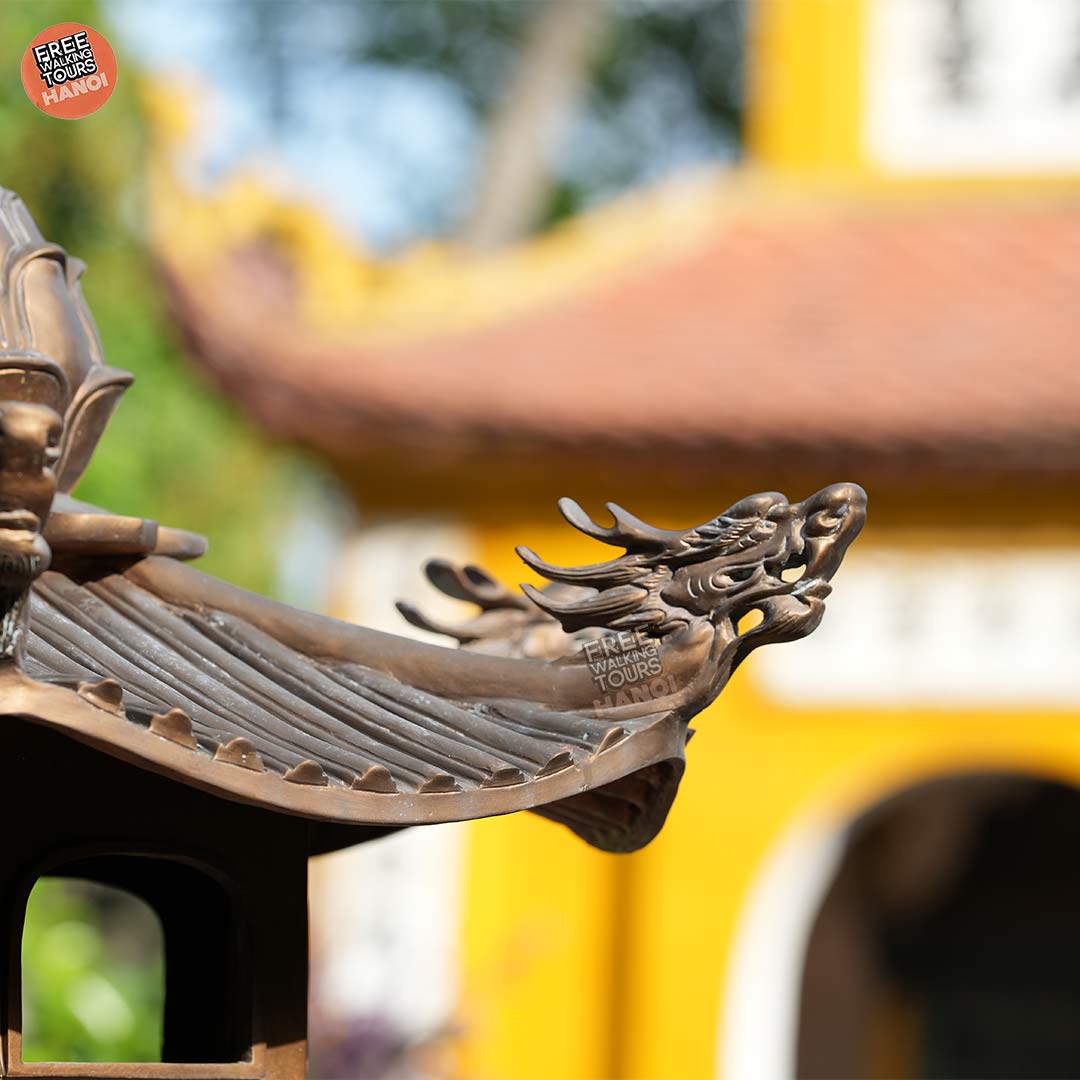Quan Su Pagoda
A Haven for Buddhist Devotees
Introduction
Quan Su Pagoda is a revered place of worship located in Hanoi, Vietnam. With its rich history and serene ambiance, the pagoda has become a haven for Buddhist devotees seeking spiritual solace. This essay delves into the significance of Quan Su Pagoda and its role in nurturing religious devotion among its visitors.
A Historical Landmark
Quan Su Pagoda stands as a historical landmark, tracing its origins back to the Ly Dynasty in the 15th century. Emperors of the time recognized the significance of Buddhism and commissioned the construction of the pagoda to promote the faith. Through the ages, it has witnessed the ebb and flow of dynasties, wars, and cultural transformations, maintaining its sanctity throughout. Today, Quan Su Pagoda stands as a testament to Vietnam’s deep-rooted Buddhist heritage.
Aesthetic Appeal
The architecture of Quan Su Pagoda is a harmonious blend of traditional Vietnamese and East Asian influences. The pagoda’s exterior features intricate carvings, vibrant colors, and ornate details that reflect the skill and craftsmanship of the artisans involved. Stepping inside, visitors are greeted by a tranquil atmosphere and a central prayer hall adorned with statues of revered Buddhist figures. The meticulous design and attention to detail make Quan Su Pagoda a sight to behold.

Nurturing Spiritual Devotion
Within the walls of Quan Su Pagoda, Buddhist devotees engage in various spiritual practices and rituals. Meditation sessions are held regularly, providing practitioners with an opportunity to quiet their minds and seek enlightenment. The chanting of sutras fills the air, creating an atmosphere of deep introspection and reverence. Pilgrims also make offerings of flowers, incense, and food as a gesture of respect and devotion. These practices cultivate a sense of spiritual connection and foster a deepened faith among the visitors.
Contribution to Society
Beyond its role as a spiritual center, Quan Su Pagoda actively engages in educational and charitable activities. The pagoda serves as a place of learning, offering Buddhist teachings and organizing seminars on philosophy, ethics, and meditation. Additionally, the pagoda is involved in numerous charitable endeavors, providing support to the underprivileged, offering healthcare services, and contributing to disaster relief efforts. Quan Su Pagoda extends its compassion beyond its walls, embodying the values of Buddhism in action.
Vibrant Celebrations
Throughout the year, Quan Su Pagoda becomes a hub of cultural and festive celebrations. During important Buddhist holidays, such as Vesak or the Lunar New Year, the pagoda comes alive with colorful decorations, traditional music, and vibrant processions. These celebrations bring together the local community and create a sense of unity and joy. The festivities not only showcase the rich cultural heritage but also serve as a platform for sharing Buddhist teachings and values.
Role in Preserving Buddhist Traditions
Quan Su Pagoda plays a pivotal role in preserving and passing on Buddhist traditions to future generations. Monks and nuns residing in the pagoda dedicate themselves to studying Buddhist scriptures, upholding moral principles, and practicing the teachings of the Buddha. They serve as custodians of wisdom, offering guidance and imparting spiritual knowledge to visitors and disciples. By ensuring the continuity of Buddhist traditions, Quan Su Pagoda safeguards the essence of Buddhism and its values.
A Place of Pilgrimage
Quan Su Pagoda has gained prominence as a significant pilgrimage site, attracting devotees from near and far. Pilgrims undertake arduous journeys to pay homage to the pagoda and seek blessings for their personal well-being. The sacred ambiance and the presence of revered relics within the pagoda’s precincts infuse the place with spiritual energy. The act of pilgrimage itself symbolizes devotion and serves as a way for individuals to deepen their connection with Buddhism.

Influence on Society
Beyond its religious significance, Quan Su Pagoda has a profound influence on society. It serves as a symbol of unity, bringing people from different backgrounds together in their shared pursuit of spiritual growth. The pagoda also acts as a platform for interfaith dialogue, fostering understanding and harmony among diverse religious communities. Quan Su Pagoda’s positive social impact extends beyond the Buddhist community, promoting mutual respect and peaceful coexistence.
Cultural Significance
Quan Su Pagoda holds immense cultural significance within Vietnam. It serves as a repository of traditional arts, hosting exhibitions and performances that showcase Vietnamese music, dance, and literature. The pagoda’s cultural events highlight the interplay between Buddhism and Vietnamese customs, reinforcing the connection between spirituality and the nation’s cultural fabric. Quan Su Pagoda acts as a cultural guardian, preserving and promoting Vietnam’s rich heritage.
Conclusion
Quan Su Pagoda, with its rich history, architectural beauty, nurturing of spiritual devotion, educational and charitable activities, vibrant celebrations, preservation of Buddhist traditions. It has magnetism as a pilgrimage site, social impact, and cultural significance. This place stands as a testament to the profound influence of Buddhism in Vietnam. It serves as a haven for Buddhist devotees, offering solace, spiritual nourishment, and a sense of community. Quan Su Pagoda embodies the essence of Buddhism and continues to inspire generations with its timeless teachings and cultural contributions.
If you are in Vietnam and interested in discovering more about Hanoi – the capital and its significance, we invite you to join us at Free Walking Tours Hanoi. We’ll take you across the building, and provide you with a unique perspective of the city. Book now and don’t miss out on this amazing experience.

